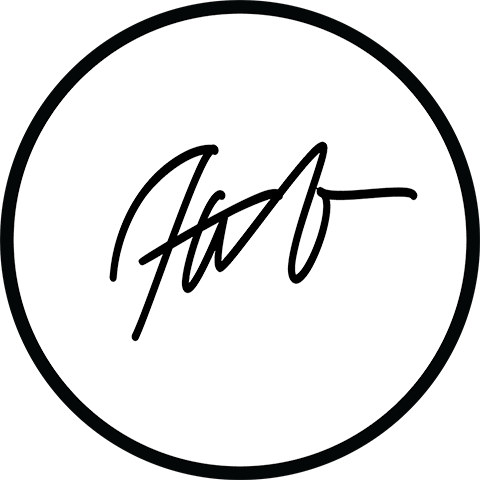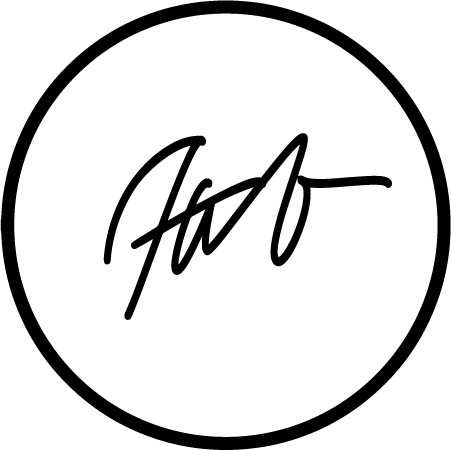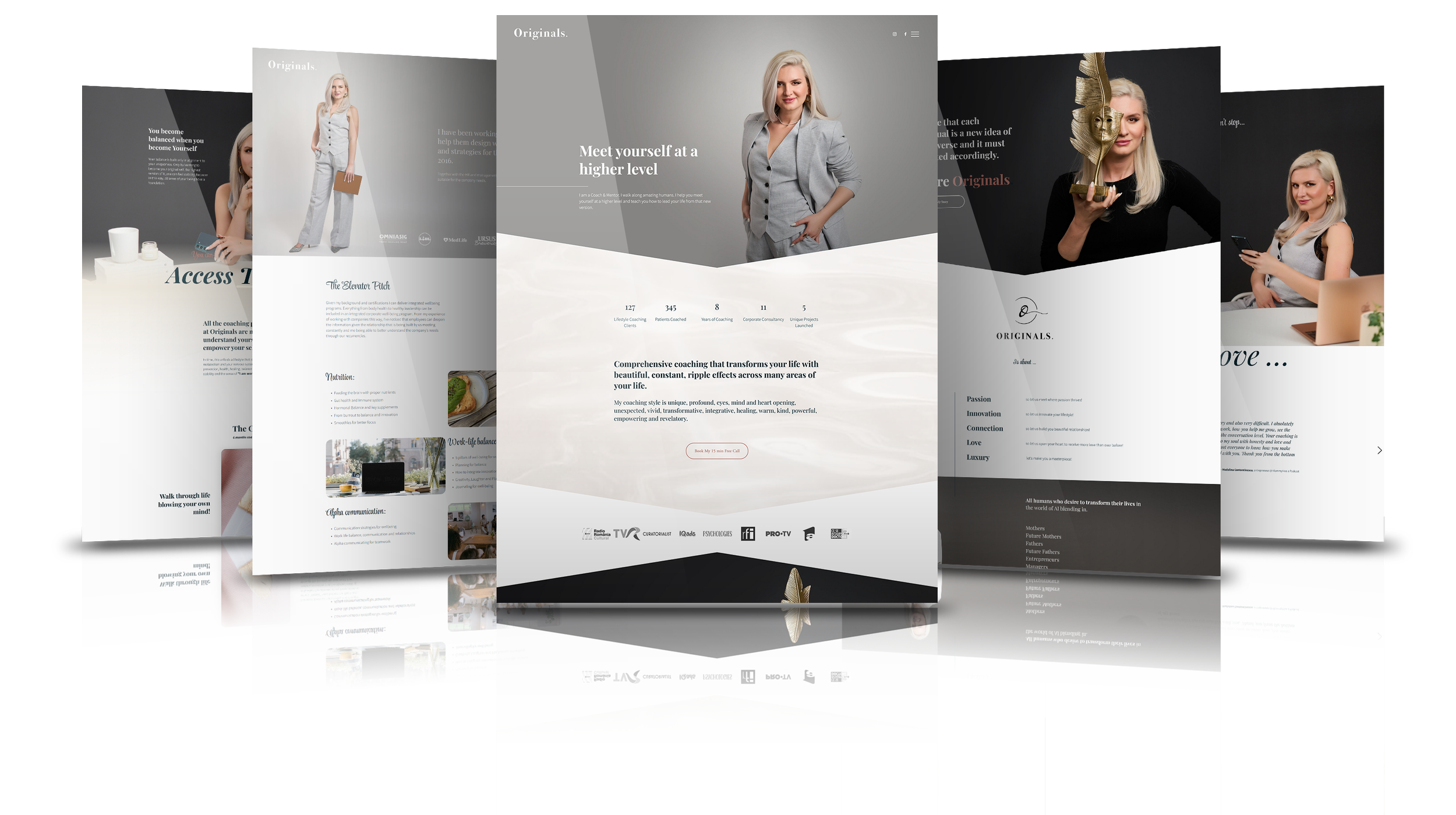Personal Branding for Coaches and Consultants: Maximizing Revenue Potential
As a coach or consultant in today's competitive landscape, it's not just your expertise that sets you apart—it's your personal brand. In this article, we'll explore the importance of personal branding for coaches and consultants and provide actionable insights on maximizing your revenue potential through effective branding. And remember: whether or not you realize it, you already have a brand.
1. The Foundation of Success: Personal Branding
Personal branding is more than a buzzword; it's the cornerstone of success for any professional. Your personal brand is your unique identity in a crowded market, defining who you are, what you do, and why clients should choose you. Let's dive deeper into this.
Understanding Personal Branding
At its core, personal branding is the practice of strategically shaping and promoting your individual image, expertise, and unique qualities within your professional field. It differentiates you in a competitive coaching and consulting market, making you more than just a service provider; you become a recognized and trusted authority. (Rihanna isn’t just a singer or a make-up company CEO, right?)
Distinct from Corporate Branding
It's crucial to differentiate personal branding from corporate branding. While corporate branding represents companies or organizations, personal branding is all about you. Your personal brand is an extension of your personality, values, and skills, setting you apart from the organization you may work with or represent.
image from Rebecca Flint
Success Stories in Personal Branding
Let's start with a success story to illustrate the power of personal branding.
Marie Forleo
Marie Forleo is a successful American entrepreneur and life coach who has built a remarkable personal brand. She is known for being authentic and relatable to her audience by sharing her personal experiences and challenges. This honesty and transparency have helped her connect with her audience more deeply. Her online presence is crucial to her brand and success as a life coach and entrepreneur. Marie has a strong online presence through various platforms, such as her YouTube channel, MarieTV, which offers a diverse range of content. Her website, marieforleo.com, provides free resources like blog posts and tools. She is also active on social media and has a newsletter. Marie offers online courses, hosts a podcast, and has authored books. She has created an engaged and supportive online community.
Trust Is the Currency: The Role of Personal Branding
Trust is the currency of coaching and consulting. Clients seek professionals they can connect with and trust to guide them on their journeys. Your personal brand is your trust-building tool.
The Trust Factor
Your personal brand instills confidence in your clients. When your brand reflects authenticity, expertise, and a genuine commitment to their success, clients are likelier to choose you. They feel a connection and a sense of reliability, which is essential in the world of coaching and consulting.
2. Your Unique Value Proposition: The Core of Branding
What sets you apart from the competition? In the personal branding journey, identifying your unique value proposition is crucial. It's the essence of your brand.
Discovering Your Unique Value
Your unique value proposition is what makes you exceptional. It's your niche expertise, approach, distinctive style, or personal story. Identifying this uniqueness is essential for effective branding. Your personal brand should be an authentic representation of your value to clients.
The Unique Value Proposition formula
The simplest way to write a value proposition is this:
We help X do Y by doing Z.
X: The type of people or customers you are trying to sell your product.
Y: The benefit the product delivers.
Z: The type of product or the main feature.
Example from us: We (The FAB SQUAD) help X - entrepreneurs, solopreneurs, and professionals Y - discover their personal brand Z- by offering integrated services (consultancy, branding, photography, web design, social media).
3. The Art of Storytelling: Building a Compelling Brand
Storytelling is a powerful tool in personal branding. Your story connects you with your audience personally and leaves a lasting impression.
Storytelling for Impact
In personal branding, storytelling is not about fictional tales but about sharing your journey, experiences, and the transformation you bring to clients' lives. Clients want to know the person behind the services. Your story humanizes your brand and makes it relatable.
Remember:
1. Be authentic: Your personal brand story should be a true reflection of who you are. Make sure to be honest and genuine in your storytelling.
2. Be specific: Instead of speaking in general terms, use specific examples and jokes (if you know some) to make your story more relatable and memorable.
3. Be consistent: Once you've found your personal brand story, make sure to use it consistently across all your branding efforts.
4. Share relevant experiences and accomplishments: Use your social media profiles to showcase your experiences and accomplishments in a way that aligns with your personal brand story.
5. Share valuable content: Share articles, blog posts, and other content that aligns with your brand story and helps establish you as an expert in your field.
6. Use visuals: Adding images and videos to your profile can help tell your personal brand story visually and make it more engaging for your audience.
4. Crafting an Online Presence: The Digital World of Branding
Your online presence is your virtual storefront. It's where potential clients first encounter your brand, so it should be compelling and consistent.
Building an Online Presence
Your website is often the hub of your online presence. Ensure it clearly communicates your brand's values, services, and expertise. Beyond the website, maintain active and engaging social media profiles. Content plays a pivotal role in attracting and retaining clients. Sharing valuable content, such as blogs, videos, and webinars, helps establish your expertise and authority in your field.
If you are a coach or consultant, your website should include:
An “About” Page
An Active Blog
Clear Calls-to-Action On All Pages
“Your Process” Page
Pain points so that your clients will self-identify
A Calendar Booking System
Website for Cosmina Grigore made by The FAB SQUAD
5. Content as Your Ally: Attracting Clients
Content marketing is a potent tool for enhancing your personal brand and attracting clients.
Content Marketing for Coaches
Content marketing includes blog posts, videos, podcasts, ebooks, webinars, newsletters, and social media posts. Choose the ones that suit your skills and resources and your target audience's preferences. Distribute and promote your content through the appropriate channels, such as your website, email list, social media platforms, or online communities, to ensure it reaches your target audience effectively.
Define your goals and audience
Before diving into content creation, it is essential to have a clear understanding of your objectives and target audience. What are your coaching goals, and how can content marketing help you achieve them? Do you intend to boost your visibility, generate leads, or establish your authority? It is also essential to identify your ideal coaching clients and understand their needs, challenges, and aspirations. How can you assist them in resolving their issues or accomplishing their objectives? By defining your objectives and audience, you can produce pertinent and valuable content aligned with your coaching service.
Social Media Content Ideas for Coaches
Identify your target audience and explain how you can assist them.
Share your personal story and how it relates to your business.
Feature a client testimonial to showcase how your services have helped them.
Highlight your expertise by sharing your credentials and achievements.
Explain what makes you unique from others in your industry.
Share your high-value lead magnets, such as an eBook or webinar, to attract more attention to your business.
Address a common issue your target audience faces and provide a quick solution.
Introduce your signature coaching program.
Mention who is not a good fit for your program.
Provide a mindset shift that can benefit your target audience.
Discuss the biggest mistake your target audience is making and how you can help them overcome it.
6. Networking and Relationship Building
As a coach or consultant, your network is like gold - it's invaluable to your success. You already know how important it is to build strong relationships with potential clients, peers, and mentors. Not only does effective networking help you promote your services, but it also allows you to learn from others, discover new opportunities, and advance professionally. But, let's face it, in a world that's crowded and competitive, it can be tough to stand out and connect with the right people. D
Strategies for Networking
Networking can be a lot of fun if you join communities and groups that share your interests, industry, or niche. You can find these groups on social media, podcasts, newsletters, or membership sites. Joining these communities and groups can give you access to loads of helpful resources, enable you to learn from experts, and give you the opportunity to participate in engaging discussions. You can also showcase your knowledge and connect with potential clients, partners, and mentors who share your vision and values.
Attend events and workshops that are relevant to your niche, industry, or interests. You can attend these events either online or offline, such as webinars, conferences, seminars, or meetups. By attending these events and workshops, you'll meet new people, learn new skills, and discover trends that could be helpful. You can also showcase your expertise, pitch your services, and get valuable feedback. Just remember to stay in touch with the contacts you make.
Remember
Networking is not only about getting something from others but also about giving something to them. You need to offer value and support to your network, by sharing your insights, resources, tips, or referrals. You also need to show genuine interest, appreciation, and gratitude to your network, by listening, acknowledging, and thanking them. By offering value and support, you can build trust, credibility, and rapport with your network, and create a long-term relationship.
Your personal brand is a powerful tool that, when used effectively, can significantly boost your income.
By creating a strong personal brand, building an online presence, demonstrating expertise, and nurturing valuable connections, you can position yourself for financial success. To illustrate, think about how renowned graphic designer Seth Godin leveraged his personal brand by writing bestselling books, giving TED talks, and maintaining an active online presence to establish himself as an industry thought leader.
Remember that personal branding is a long-term investment, and the rewards will become increasingly evident over time. Start building and enhancing your personal brand today, and watch as it transforms your earning potential in the future.









